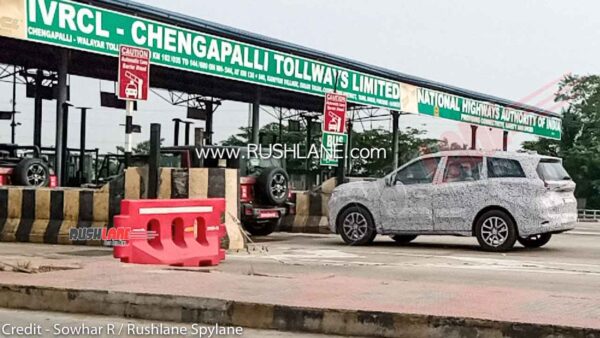
Nitin Gadkari has announced today that within 1 year all toll booths from Indian roads will be removed
A new proposal point to a near future wherein toll payments will be GPS based. Currently, all focus is on a fast based payment system, one which a bulk of vehicles are using. The RFID sticker on your windshield is scanned for automatic toll payments.
While toll payments have been continually increasing, as has the number of toll gates on certain routes, the automated RFID payment structure allows for some sense of transparency. It’s safe to conclude that all collections are accounted for now as the elaborate system of middlemen is eliminated.
Depending on point of purchase, initial purchase costs vary on account of non-standardised issuance, vehicle type, and non-refundable deposit. This charge is most likely to be returned when vehicle owners sell their vehicle, and/or the their fast balance is below the low threshold for a payment. As with all deposits, one can assume the deposit fund is largely untouched but it’s not yet outlined what purpose the corpus serves as a sitting duck apart from interest collection on said lumpsum deposit.
No more toll plazas
Doing away with toll gates will be greatly beneficial for road users. Currently, toll gates are far in excess of lanes. This system creates much havoc as road users are tasked with making the best possible gate choice according to vehicle type. This derivation is made out of thin air and prompts even the most disciplined driver to make a beeline for a lane that is seemingly quicker than others.
Invariably, the vehicles in front of you always appear to take a longer ticketing time once you’ve entered the chosen lane. At this point, there’s no other choice but to grudgingly continue forward at snail’s pace.
Hopefully, doing away with toll gates will actually help save time wasted at what was in the first place designed to be a time saving measure. There are a range technical RFID issues being dealt with at present. The most common being the scanner being unable to read but nevertheless a charge being deducted, while the vehicle user also makes a payment in cash.
New Registration Charges as Proposed
A new Government of India policy seeks to discourage old and polluting vehicles on public roads and are hence set to increase the cost of vehicle registrations for vehicles above 15 years old. The new charges will come into effect from 1st October 2021 and the Ministry of Road Transport and Highways (MoRTH) has issued a notification to this effect as a part of the vehicle scrappage policy.
According to the new proposal, car owners will have to shell out Rs.5,000 to renew registrations for cars over 15 years old. This is nearly 8 times that of the current charges that stand at Rs.600. Registration fees of bike will be at Rs.300 while renewal fees are proposed at Rs.1,000.
Three wheeler and quadricycles registration fees will stand at Rs.600 and renewals at Rs.2,500. Owners of imported cars which are above 15 years will find registrations at Rs.5,000 and renewals at Rs.40,000 once this new proposal is approved. This hike is being planned so as to deter persons from keeping their old vehicles.
The proposed fee for new fitness certificates for commercial vehicles is also set to be increased from 1st October 2021. Registration of motorcycles will stand at Rs.500 and renewals will go up to Rs.1,500. 3 wheelers and quadricycles registration fees will be at Rs.1,000 while renewals will be at Rs.3,500 and for taxis registration will be at Rs.1,000 and renewal at Rs.7,000.
Medium goods carrier charges will also increase from October with registration at Rs.1,300 and renewal at Rs.10,000 and heavy goods and passenger carrier registrations will cost Rs.1,500 and renewals at Rs.12,500.
In the case of private vehicles, RC renewal is needed every 5 years after 15 years while for commercial vehicles, this fitness certificate renewal is to be done every year once the vehicle is above 8 years old. If the registration certificate is a smart card type, then owners will have to pay Rs. 200 more for issuing or renewing it.
Penalties in Renewal
According to the proposal, delay in renewing registrations would attract hefty penalties. For private vehicles, this would stand at Rs.300-500 per month which would go up to Rs.50 per day in the case of delayed renewals of commercial vehicles.
Facilities for Scrapping of Vehicles are also being set up by the Government of India for vehicles that fail to pass the fitness test. According to the draft issued by the Ministry of Road Transport and Highways, owners of vehicles in this category would have to take the vehicle to a specified scrapping center in the country.
The scrapping center will verify the ownership of the vehicle prior to accepting them for scrappage. The scrap value will be market driven and the scrapping certificate issued can be transferred to anyone to receive an incentive on buying a new vehicle.

